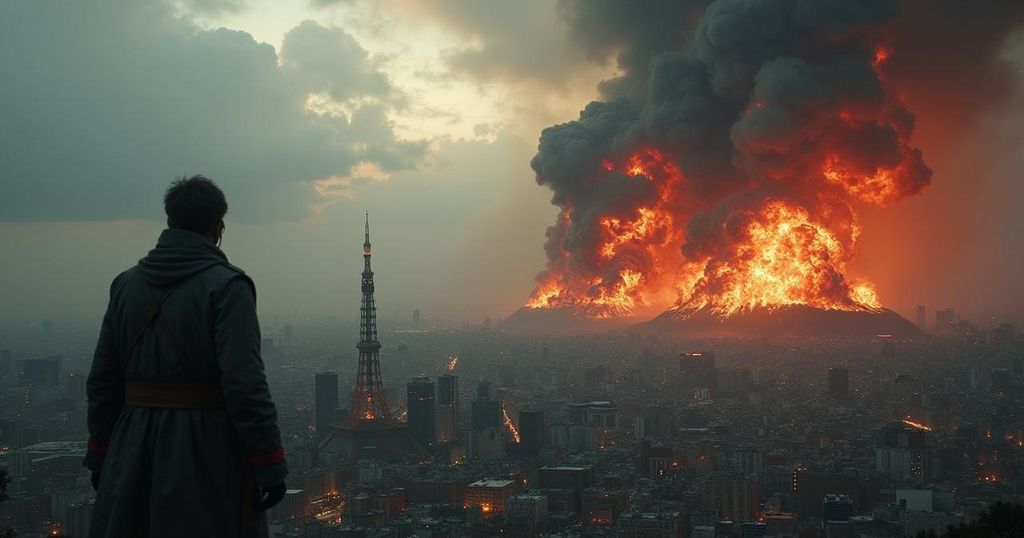The Most Dangerous Moment Since the Cold War
The article highlights the dangerous geopolitical climate reminiscent of the Cold War, marked by escalating tensions in the Middle East, Europe, and Asia. It underscores the coordinated efforts of revisionist powers such as Iran, Russia, North Korea, and China to disrupt the existing international order and the urgent need for a united response from U.S. allies.
The world currently faces a period of heightened geopolitical tension reminiscent of the Cold War, characterized by challenges across the Middle East, Europe, and Asia. These regions are witnessing revisionist powers attempting to disrupt the existing international order. In the Middle East, tensions are primarily driven by Iran’s engagement with allied militias against Israel and several Gulf states. While Iran is comparatively weaker, it has utilized irregular warfare tactics through groups such as Hezbollah, Hamas, and various factions in Iraq and Syria, which have perpetuated low-intensity conflict even before the recent Hamas attacks. This ongoing conflict has significant ramifications, leading to increased regional unease and hindering trade; approximately 70% of maritime traffic has diverted from the Red Sea area and numerous airlines have halted their services to Israel, while any prospective Houthi strikes on Saudi infrastructure could escalate global oil prices dramatically. In Europe, Russia’s invasion of Ukraine undeniably alters the security landscape, representing a clear defiance against a post-1990s order underpinned by Western dominance. Should Russia successfully exert influence over Ukraine, this would critically undermine the geopolitical stability instituted after World War II, possibly empowering Russia to pursue further territorial ambitions in neighboring regions like Georgia, Moldova, and even the Baltic states. In Asia, North Korea poses an escalating risk as evidenced by Kim Jong Un’s intensified nuclear ambitions and declarations of South Korea as a principal adversary. The geopolitical climate in Asia is further complicated by China’s efforts to challenge U.S. hegemony, particularly concerning Taiwan and other flashpoints, thereby contributing to a multifaceted threat to global stability. Of significant concern is the emerging cooperation among these revisionist powers. Reports indicate a collaboration between Russia, China, North Korea, and Iran that involves the exchange of military capabilities and technological expertise. For instance, Tehran has reportedly provided drones to Moscow while benefiting from Russia’s advanced military know-how. The United States estimates that a substantial portion of Russia’s advanced technology now derives from China, indicating a concerning realignment of interests among these authoritarian regimes. To counter these threats, allied nations must foster unity and employ a strategy designed to exploit the historical rivalries that exist within this “axis” of destabilization. Strategic diplomatic interventions could create fissures between these nations, particularly as China, despite its troubling partnerships with Russia and Iran, retains significant economic interests in global stability, contrasting with the other nations’ propensity to instigate chaos. This nuanced approach was successfully employed during the Cold War, and its replication may be necessary in addressing the current challenges, although this will require adept diplomatic engagement from Washington.
The article discusses the escalating geopolitical tensions that are reshaping the global order, drawing parallels with the Cold War era. It identifies three critical regions— the Middle East, Europe, and Asia— where revisionist powers are working to reshape international relations to their advantage. The overarching theme focuses on how these tensions are interconnected and the need for a cohesive response from allied nations.
In summary, the present international landscape is fraught with peril across multiple fronts, with Middle Eastern conflicts, Russian aggression in Ukraine, and North Korean belligerence presenting significant challenges. The necessity for a unified and strategic response among U.S. allies is paramount, as is the need to exploit existing tensions among adversarial nations to restore a semblance of stability to global relations.
Original Source: www.washingtonpost.com




Post Comment